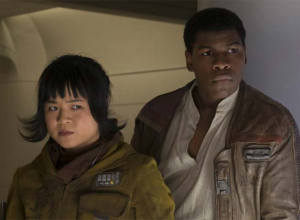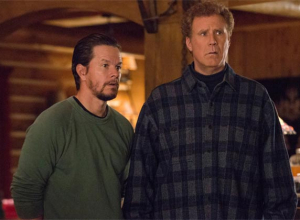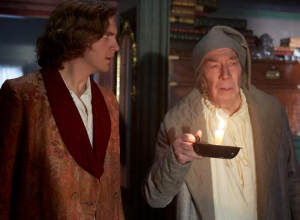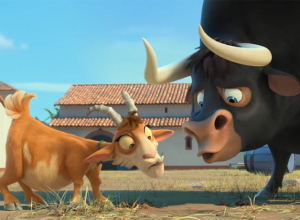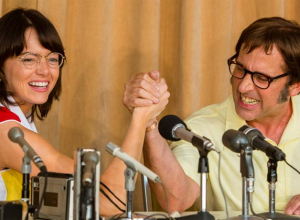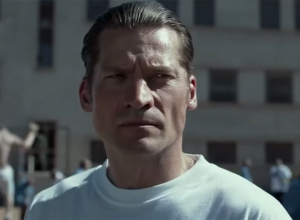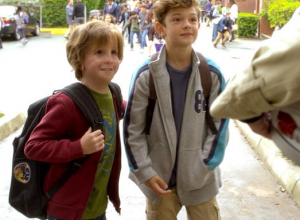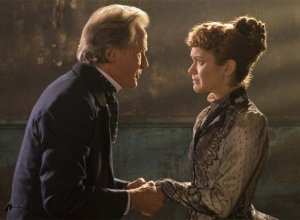Early Summer Review
By Jake Euker
But they do. Early Summer, like many of Ozu's "home dramas," is the story of a family - three generations of it - that struggles to find serenity within the cycle of life that the state of being human embodies. (Ozu's titles often find a metaphorical connection in the cycle of the seasons: Late Spring, Early Autumn, Late Autumn.) The central figure is 28-year-old Noriko, an attractive young single woman who lives with her brother Koichi, his wife Fumiko, their two young boys, and her elderly parents. We also meet her neighbors (a widower her age and his mother), her three girlfriends, a great-uncle who comes for a visit, her employer, and her brother's co-worker. Present in the thoughts of the family, though never pictured, is Noriko's brother Shoji, a soldier who remains unaccounted for from the war.
I didn't count, but David Bordwell, who wrote one of the accompanying essays, did: 19 main characters, 20 if missing Shoji is counted. Bordwell makes the intriguing point that in Early Summer Ozu foretells the kind of ensemble drama, propelled by the interactions and encounters common to any community of people, that contemporary audiences find in Amores Perros, Traffic, and almost any film of Robert Altman's. The various plot threads are gathered loosely into a rich depth of narrative, so that an event affecting one character - the widowed neighbor is transferred to a distant town, for instance - reverberates throughout the film.
At the film's core are the efforts of Noriko's family to find her a husband. Noriko herself, infallibly good-natured, seems oblivious to the undertaking and indifferent to its outcome. When, ultimately, this proves not to be true, the decision she suddenly makes changes the life of her family forever. Part of the brilliance of Early Summer is the extent to which this decision affects the viewer as well; the film moves along with the seeming ease of a Leave it to Beaver episode, and it's astonishing to suddenly find yourself at the brink of these unforeseen emotional depths.
This illusory ease is what's greatest about Ozu in general and Early Spring in particular. The film's style, as serene as a sand garden, is the perfect vehicle for chronicling the small pleasures and disappointments that comprise the bigger enterprise of life. Ozu's genius was to capture these moments in a way no other filmmaker has.
The Criterion release also includes an essay from Jim Jarmusch, a commentary track by Donald Richie, and a video remembrance of the director by former members of his cast and crew.
Aka Bakushû.
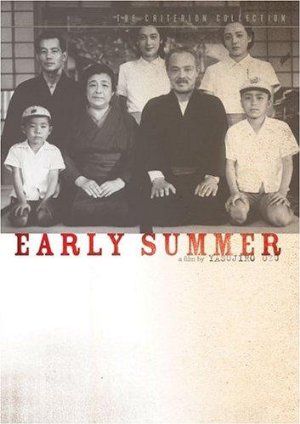
Facts and Figures
Year: 1951
Run time: 124 mins
In Theaters: Wednesday 2nd August 1972
Distributed by: Criterion Collection
Production compaines: Shôchiku Eiga
Reviews
Contactmusic.com: 5 / 5
Rotten Tomatoes: 100%
Fresh: 9
IMDB: 8.1 / 10
Cast & Crew
Director: Yasujiro Ozu
Producer: Takeshi Yamamoto
Screenwriter: Kôgo Noda, Yasujiro Ozu
Starring: Setsuko Hara as Noriko Mamiya, Chishû Ryû as Koichi Mamiya, Kuniko Miyake as Fumiko Mamiya, Ichirô Sugai as Shukichi Mamiya, Chieko Higashiyama as Shige Mamiya, Haruko Sugimura as Tami Yabe, Kuniko Igawa as Takako, Toyo Takahashi as Nobu Tamura (as Toyoko Takahashi), Seiji Miyaguchi as Nishiwaki
Also starring: Chishu Ryu, Chikage Awashima, Ichiro Sagai, Takeshi Yamamoto, Kogo Noda, Yasujiro Ozu
